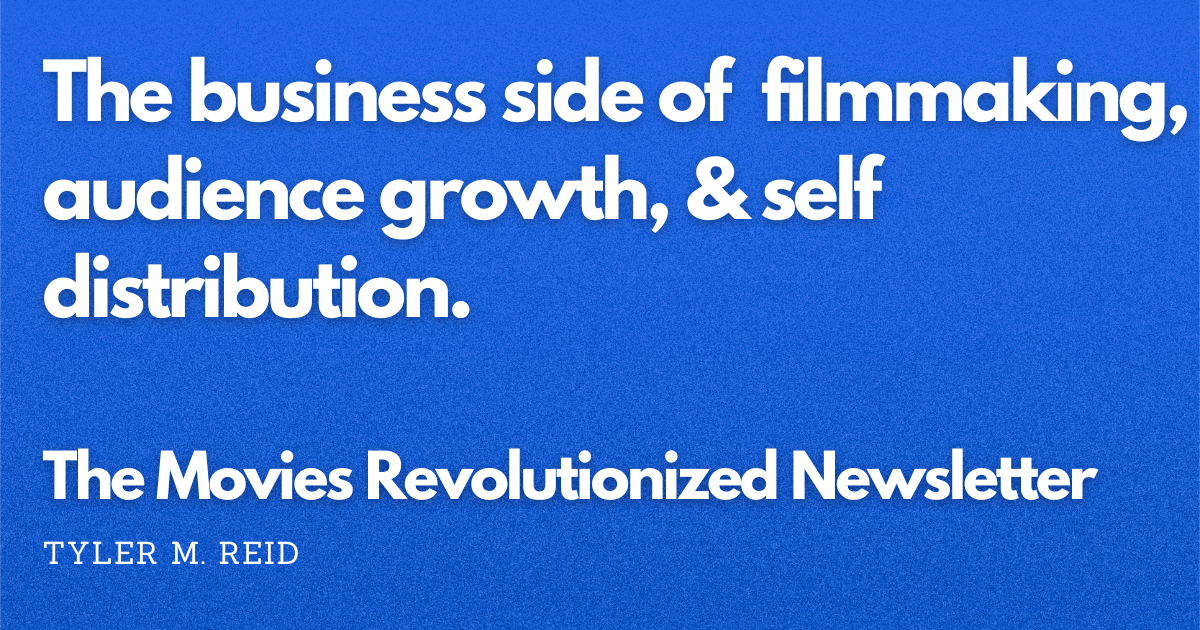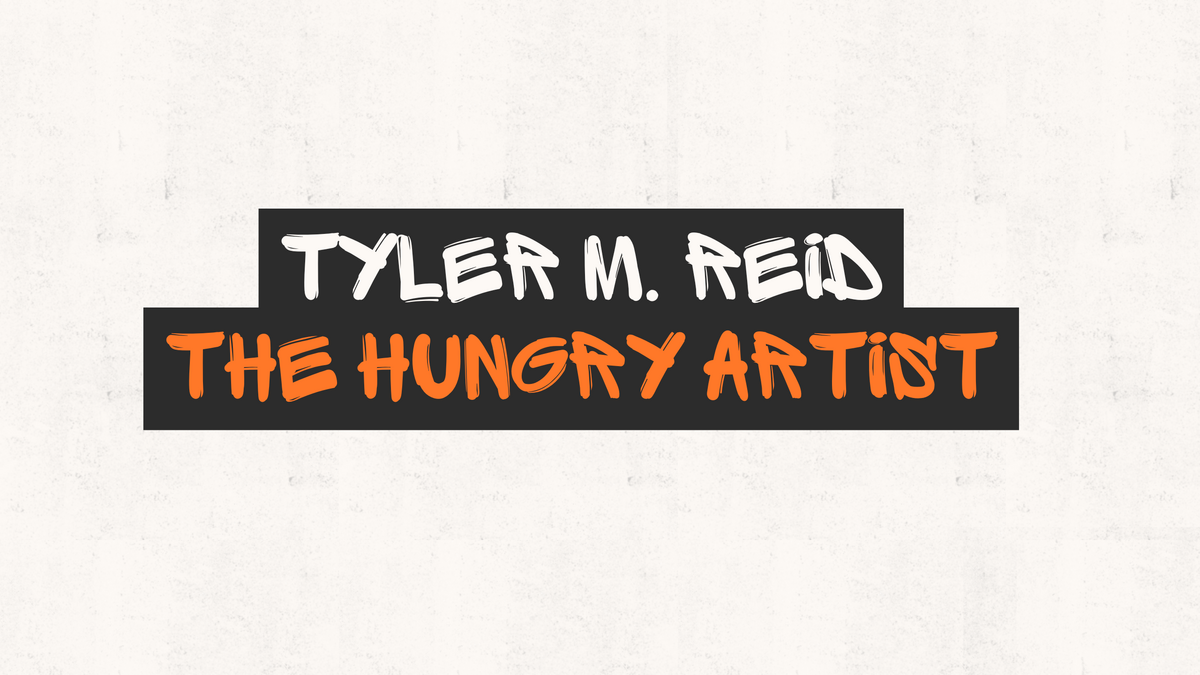Founders need better information.
Get a single daily brief that filters the noise and delivers the signals founders actually use.
All the best stories — curated by a founder who reads everything so you don't have to.
And it’s totally free. We pay to subscribe, you get the good stuff.
Write what you know is terrible advice
“Write what you know.” There is a whole heck of a lot I don’t know. But there is a whole hell of a lot I can imagine!
It’s one of the most common pieces of advice given to writers and filmmakers. You hear it in classrooms, in screenwriting books, in workshops. And at first, it sounds reasonable. Why not stick to your own lived experience? Why not lean into what you’ve already seen and done?
If all you ever did was write what you know, your creative life would be painfully limited. Most of us don’t live through wars, space travel, or encounters with time traveling robots. Most of us live pretty ordinary lives. And while those lives might be meaningful to us, they don’t necessarily translate into stories that excite audiences.
Great films don’t come from writing only what you know. They come from writing what you imagine, and rooting that imagination in emotions you understand.
Join the Filmmaking Lab today and get $30 OFF with discount code: 30
The filmmaking lab is about collecting the best advice and actionable tools to help you take your indie film idea and get it funded. With live digital talks coming from industry professionals, covering everything from financing, marketing, to distribution.
The limits of “what you know”
If everyone stuck to “what they know,” most books and movies would be incredibly dull.
A banker writing only about banking. A teacher writing only about grading papers. A delivery driver writing only about long hours on the road. These experiences might be authentic, but on their own, they don’t automatically make compelling stories.
Yes, there’s detail. Yes, there’s truth. But detail without imagination rarely leaps off the page.
That’s the trap of “write what you know.” It encourages literalism. It keeps you locked inside your own small bubble instead of pushing you toward the stories that only you can imagine.
That’s what I love about writing, filmmaking, and storytelling overall! It’s imagination exploration. Think of hundred year old folklores, think of 1000 year old sea monsters, think many thousand year old greek mythology.
Write what you can IMAGINE!
Real world examples
Some of the most iconic filmmakers and storytellers in history didn’t just “write what they knew.” They invented.
George Lucas didn’t know what it was like to be a samurai in space. He’d never flown a starfighter, never been mentored by a Jedi, never fought an intergalactic empire. And yet he created Star Wars, a story that has shaped global culture for nearly fifty years.
James Cameron didn’t grow up with killer robots. No cyborgs came after him in his youth. But when he dreamed up The Terminator, he wasn’t pulling from literal experience, he was channeling his imagination, his fears, and his ideas about technology and survival.
Chloé Zhao didn’t grow up in the American West. She wasn’t raised around rodeo cowboys or wide open plains. She’s from Beijing. But she wrote and directed The Rider with such authenticity that audiences believed she must have lived it. Later, she went on to win an Academy Award for Nomadland.
None of these artists limited themselves to “what they knew.” They went beyond, and in doing so, created works that connected deeply with audiences.
Lee Child’s Take
The novelist Lee Child, creator of the Jack Reacher series, put it bluntly:
“This dreadful phrase in writing, write what you know, which I think is terrible advice, absolutely the worst advice. Do not write what you know because there are very few people in the world who know enough to make a story genuinely exciting. You’ve got to invent a lot of it. Write what you know will never be good enough. It’ll be boring.”
Child points out that when writers obsess over their jobs, hobbies, or niche experiences, those details don’t always translate into something universal. What feels fascinating inside one bubble might feel meaningless outside it.
His solution is simple: don’t write what you know, write what you feel.
First imagine it, then add emotions behind it. Imagination without emotions we can connect too is like someone explaining a dream to you they had. It’s hard to follow and usually you aren’t interested because you have no emotional attachment to their dream.
Write what you feel.
Here’s the distinction. You may not know what it’s like to pilot an X-wing, face down a robot assassin, or live as a drifter in the Midwest. But you do know what it’s like to feel fear, longing, loss, ambition, love, or hope.
Those feelings are the bridge between your life and the imagined world of your story.
George Lucas might not have been a Jedi, but he knew what it was like to be young, restless, and searching for purpose — just like Luke Skywalker.
James Cameron didn’t battle a terminator, but he understood fear, survival, and fighting against overwhelming odds.
Chloé Zhao didn’t grow up among cowboys, but she could empathize with isolation, identity, and the pull of community.
The details may be invented, but the emotions are real. That’s what makes the story work.
Why This Matters for Filmmakers
For filmmakers, this shift in thinking is critical.
Too many people hold themselves back because they believe they’re “not qualified” to tell a certain story. They say: “I can’t write that, I’ve never lived it.”
But imagination is the job. If your only stories are the ones you’ve personally lived, you’ll run out of material fast. And worse, you’ll never stretch into the stories that truly excite you.
What matters isn’t whether you’ve literally experienced something. What matters is whether you can connect to the emotional truth inside it. That’s what will connect with audiences.
So stop worrying about whether you’ve “earned” the right to tell a certain kind of story. You’re allowed to imagine. That’s the whole point.
“Write what you know” is limiting. It boxes you in. It tells you to stay small.
A better piece of advice is: Write what you feel. Then let your imagination do the rest.
Audiences don’t need you to have lived through a space battle or a robot apocalypse. They need you to tell a story that feels true to the human experience. They need imagination, emotion, and a point of view.
So don’t wait until you feel “qualified.” Don’t hold back because your real life doesn’t look like the story in your head.
Write it anyway.
Because the stories that matter most don’t come from what you already know. They come from what you dare to imagine.




